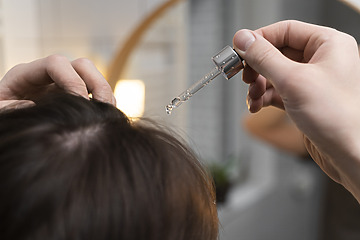
Minoxidil stands out as one of the most frequently recommended treatments for hair loss. It actively aids in the reduction of hair fall and stimulates regrowth across a spectrum of hair loss conditions, ranging from male pattern baldness to traction alopecia. Indeed, hair loss specialists frequently recommend it to their patients, with a significant 53% stating they always or often do so.
Currently, the precise mechanism by which Minoxidil increases hair growth is not fully understood. However, a prominent theory suggests that the regular application of Minoxidil facilitates increased blood flow to the scalp, thereby providing hair follicles with a greater supply of essential nutrients and oxygen.
It belongs to the vasodilator family of medications, which are designed to widen blood vessels. By improving blood circulation, Minoxidil is believed to encourage the flow of vital nutrients to your hair follicles. Consequently, this stimulation can prompt them to enter the growth phase of the hair growth cycle.
Interestingly, Minoxidil was discovered serendipitously in the 1970s when the medication was administered to patients suffering from severe refractory hypertension. It was only after these patients began to exhibit abnormal hair growth on their bodies that experts realized this could serve as an effective remedy for treating male pattern baldness and other forms of hair loss.
Minoxidil is generally considered a well-tolerated hair loss treatment that possesses a favorable safety profile. Nevertheless, some individuals who use it do report experiencing side effects. These may include skin or scalp irritation, rashes, an itchy scalp potentially caused by Minoxidil, allergic contact dermatitis, and localized or generalized hypertrichosis (although this is more commonly observed when patients take oral Minoxidil, which is not typically prescribed for hair loss). Additionally, Minoxidil hair shedding and changes in hair color have been reported.
These side effects typically subside within the initial few weeks of consistent use. If you observe that your side effects persist, or if you experience a severe or allergic reaction, it is advisable to consult with your general practitioner. Concerns regarding the sexual side effects of it are understandable; fortunately, it is recognized as one of the safer hair loss drugs, as it does not impact your hormone levels.
Please do consider getting a free consultation from our expert team with Datuk Dr Inder at Inno Surgical Care before proceeding with any treatments.